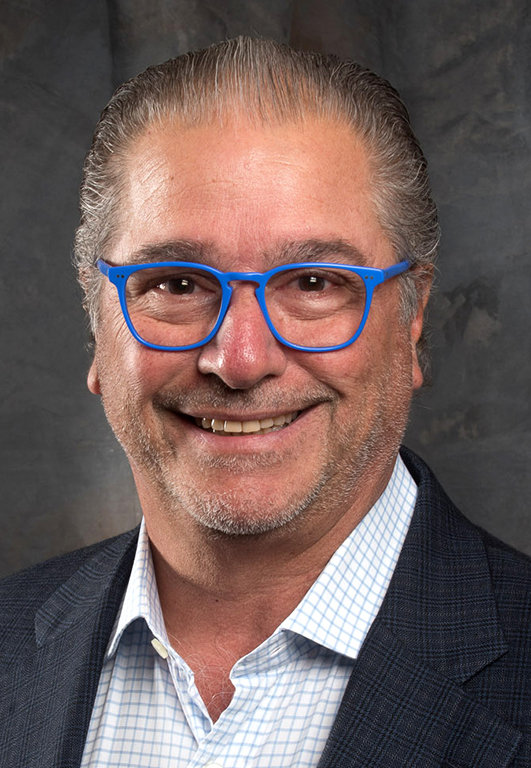NCTC Helps Smaller Operators Navigate Cable’s Shifting Roads (Q&A)
Ahead of The Independent Show in Minneapolis, co-op’s Lou Borrelli and Judy Meyka survey connectivity’s business climate

The smarter way to stay on top of the multichannel video marketplace. Sign up below.
You are now subscribed
Your newsletter sign-up was successful
The National Content and Technology Cooperative (NCTC), with partner ACA Connects, will stage The Independent Show, their signature conference, in Minneapolis July 30-August 2 amid a changing and challenging marketplace for NCTC’s more than 700 small, independently-owned communications service provider members.

With major changes to the traditional video business, a continually shrinking subscriber base and increased competition from emerging technologies, NCTC executives said the conference will look to educate and inform member distributors who have their hands full keeping their future business prospects in line with the evolving landscape.
Multichannel News caught up with NCTC CEO Lou Borrelli and executive VP of programming Judy Meyka to talk about the state of the business and the co-op’s role in mitigating the myriad of industry changes both on the programming and technology side on the eve of The Independent Show. A lightly edited version of the interview appears below:
MCN What are the top issues NCTC members are facing going into the Independent Show?
Lou Borrelli: As you know, the business has been evolving for several years now, from content being the main product driving the business to now being one of a few products. What Judy and her team have been doing is successfully navigating how we prepare for what our members will be thinking about doing going forward. The whole concept of declining linear customers is real, and we have some member companies — mostly the smaller ones — who have opted out of video and gone broadband-first. We’ve been looking at a wide range of solutions that would potentially provide choices to members based upon their size and based upon their strategy to have video as an essential product. Video may not be as essential as it was 15, 20, or 30 years ago, but it's still important. The key is it's evolving into something different where the economics are different and the customer relationship is different. Part of our job as stewards of the co-op is to figure out strategies and execution that our members can accept that give them a chance to keep going in this category.
MCN: Are you finding that most of the members are still supportive of the video business or are they looking to follow other distributors in partnering with a virtual MVPD for video while continuing with the broadband business?
Judy Meyka: Unfortunately, it is a huge range of feelings, to be honest with you. I've said this before … if you ask 10 of our members, you'll probably get nine or 10 different answers. I think it depends on the history of the member. If they started as a cable company or a telco, or an overbuilder, it might make a difference in where they are now in the evolution. But we really have a lot of members who still believe in video — it might not look exactly the same, and maybe it should look even more different going forward. Some of our members definitely view vMVPDs as competition, but others view it as a way to offer their customers the kind of viewing experience that they want. It really depends on what their strategy is and how they feel about it going forward. There are definitely some of our members who are ready to get out of video; it just depends on who they are and where they are in their evolution and their process.
The smarter way to stay on top of the multichannel video marketplace. Sign up below.

MCN: For those members who do wish to stay in video, what are the biggest challenges they face in an evolving marketplace?
JM: As I’m sure you’ve heard a billion times, the cost of programming continues to be a concern. They’re really focused on wanting to give the consumer what the consumer wants, and I think the consumer does want bundled programming, although I'm not sure what that bundle exactly is. They also want more programming but at a lower cost. That's obviously incredibly challenging in this day and age given the ever-increasing costs from the programmer side. I also think that one of the challenges is wanting to make sure that the consumer has the best user experience. We still have members who have analog systems, and we have a lot of members who have upgraded and want to make sure that they can keep upgrading that experience for customers, and sometimes that’s not easy to do on an individual basis. One of the huge benefits that the co-op offers is to give members the ability to upgrade to a better platform in an aggregated way. Obviously, competition is always an issue because there’s a lot of competition out there. Also, the large programming media groups taking value out of the linear channels by moving it to the direct-to-consumer platform is a huge challenge. How do we still maintain a product that has enough value and is worth what we and the consumer are actually paying for it?
LB: The reality is that media companies have been developing their direct-to-consumer platforms. It’s sort of like building a car while you're driving it down the road, and we are both the gas and the mechanics to keep their businesses running. For those of us that have been in the business on the cable side some 45 years, it’s rough, but I understand it. It’s not like I think they should never do it, but I think that if it were me and if we had the opportunity to talk about it years before they decided to go, we probably would’ve crafted a more elegant transition that would’ve provided a little less risk and a little bit more of the opportunity for us to continue to have an ongoing financial relationship.
MCN: With the continual change in the marketplace, what is NCTC’s role in negotiating deals for its members, and what are members asking you to do?
LB: We look at the industry holistically and look for the best opportunities for our members. That’s why we’re in the connectivity business and that’s why we’re launching MVNO [Mobile Virtual Network Operator-provided cellphone service]; that’s also why we’ve ramped up and retooled our group purchasing. For the bulk of our members, we are the strategic overhead that they can’t afford and the purchasing power that they can’t do on their own. We are the ones that can go out and evaluate technology, products, and services that frankly they don’t have the time to do or, especially for the smaller guys, don't have the expertise to do. We do a really good job of evaluating options and try to present them in a way where the members feel like they have some choices. We’ve been agile and I think we continue to figure out how we can be an essential service to the membership at large, not just a particular subset.
JM: Even if the member doesn’t actually partake in these new technologies, deals or other things, we are a place that they can come to to get information, or ask questions or just ask if they are thinking about the right stuff.
R. Thomas Umstead serves as senior content producer, programming for Multichannel News, Broadcasting + Cable and Next TV. During his more than 30-year career as a print and online journalist, Umstead has written articles on a variety of subjects ranging from TV technology, marketing and sports production to content distribution and development. He has provided expert commentary on television issues and trends for such TV, print, radio and streaming outlets as Fox News, CNBC, the Today show, USA Today, The New York Times and National Public Radio. Umstead has also filmed, produced and edited more than 100 original video interviews, profiles and news reports featuring key cable television executives as well as entertainers and celebrity personalities.

